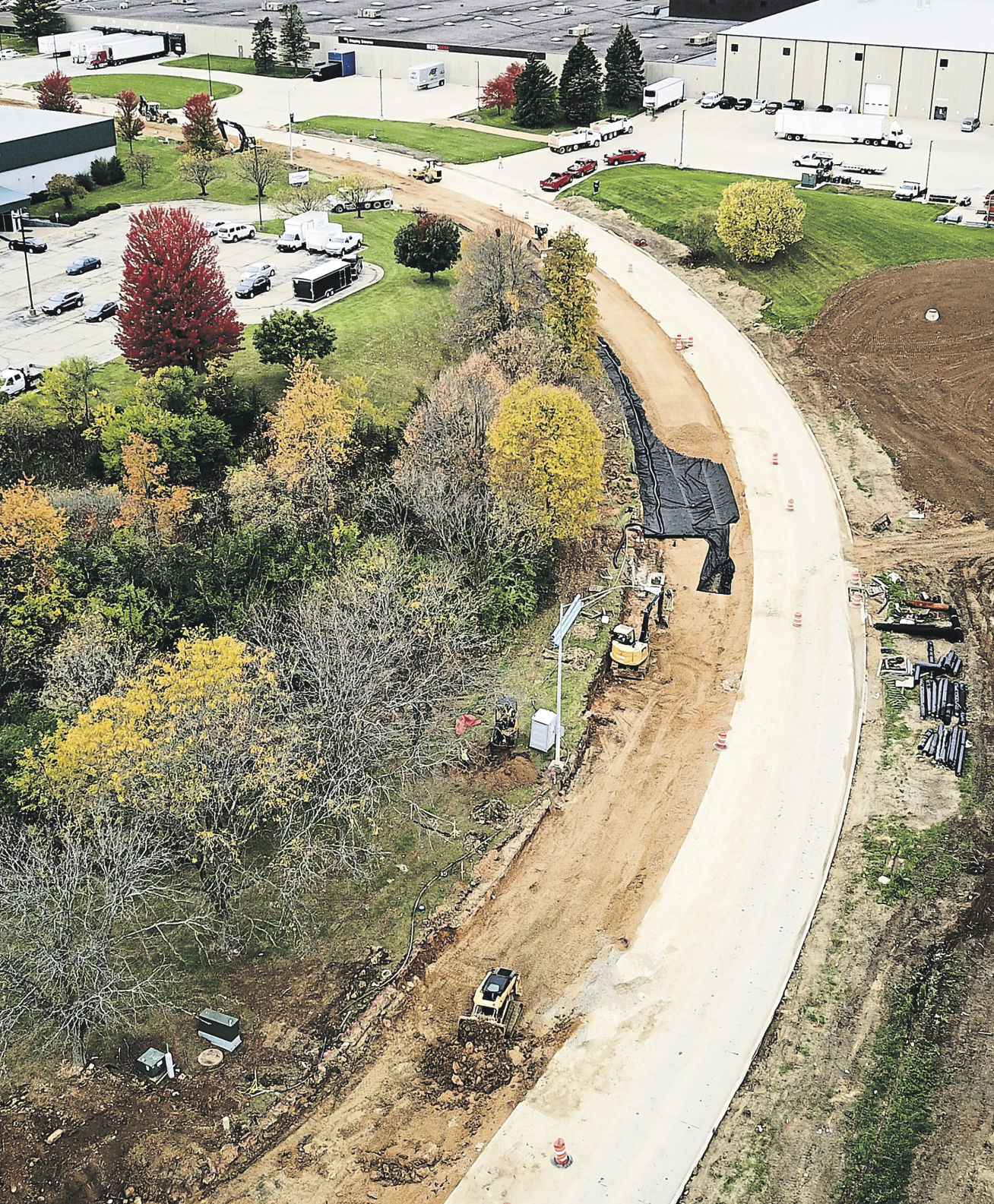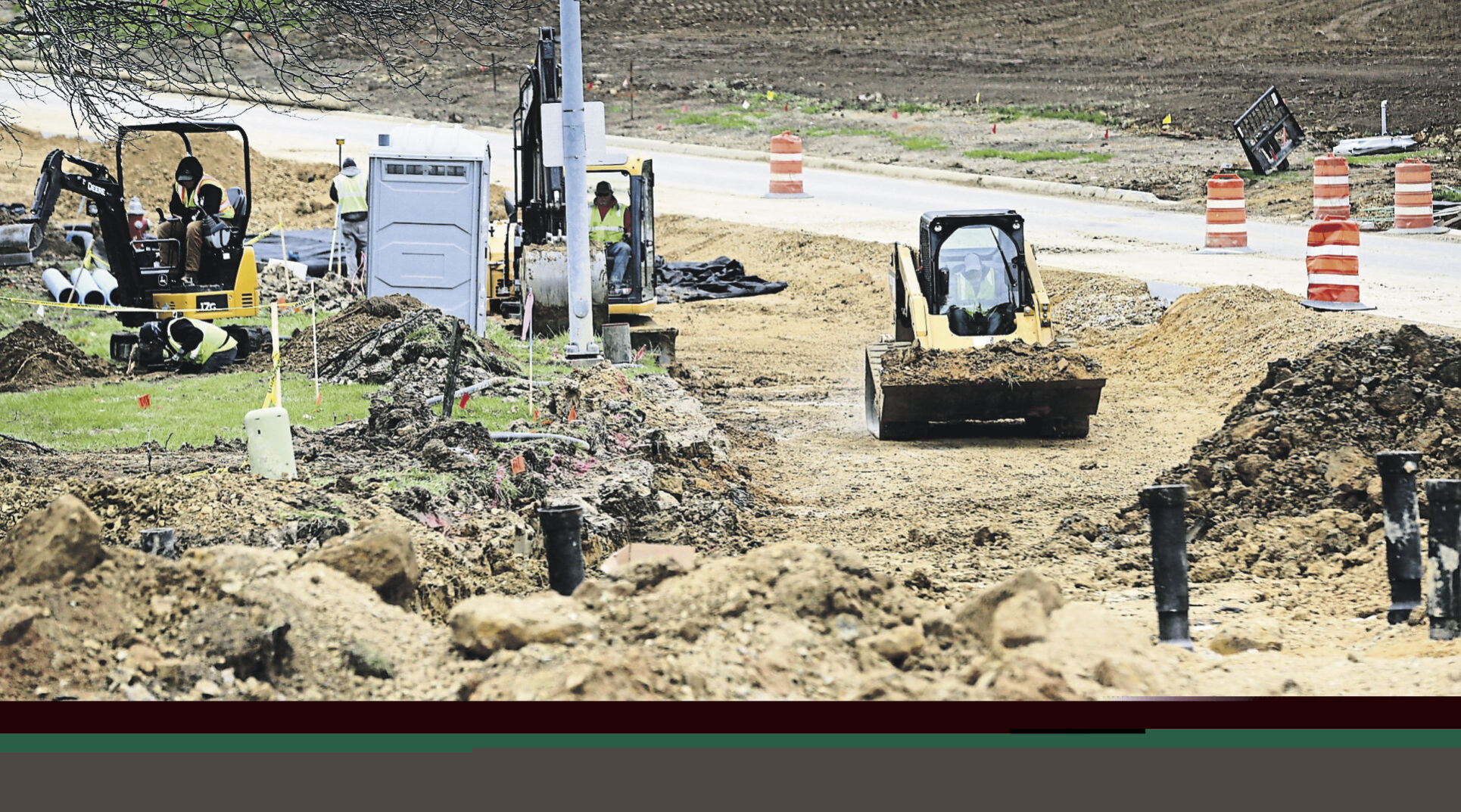Iowa Workforce Development collects data based on the number of unemployment insurance claims made each month during the week containing the 19th.
That data indicates the construction industry face high levels of seasonal unemployment each year.
September 2020: 4,372
October 2020: 2,515
November 2020: 3,634
December 2020: 6,056
January: 12,047
February: 15,227
March: 12,432
April: 5,949
May: 3,285
June: 2,231
July: 1,406
August: 1,227
September: 1,106
To some workers, freezing temperatures and winter weather means one thing — layoffs.
A quirk of the construction industry in the north is that when the weather gets too cold, some work becomes expensive or impossible.
Vertical construction on houses or buildings can go on without interruption, with projects planned so that the internal work is done in the winter.
“Some trades, it doesn’t hardly affect at all,” said Tom Townsend, president of the Dubuque Building and Construction Trades Council. “Some it affects much more drastically.”
Pavers don’t lay asphalt when the ground is frozen. Concrete can be poured in cold weather, but only if certain precautions are taken.
“There comes a point in time when it’s not cost-effective to go out,” said Jeff Flynn, president of Flynn Co. Inc., a Dubuque-based concrete paving company.
Tri-State Paving Services is a Dubuque-based asphalt paving company. Owner Jeff Spahn said that it also does very little paving in the winter.
“You really can’t pave in cold weather,” Spahn said.
For those who work in road construction and similar fields, this means there aren’t many jobs in the winter.
“It’s a real hit and miss kind of thing. It’s not like building a house,” Spahn said.
At Flynn Co., most workers are let go in the winter, with a handful staying on to work on equipment for the next construction season. That is typical of most companies, Townsend said.
“They go on unemployment or seek out other work,” Flynn said.
Tri-State Paving Services turns to snow plowing in the winter, keeping some workers on the payrolls. Snowplowing uses much of the same equipment.
“We bring back everyone we can to do snowplowing,” Spahn said.
On snow-plowing days, Tri-State needs more workers than it employs during the paving season, but the work doesn’t amount to nearly as many hours.
“They might only work 15 days during winter,” Spahn said.
Iowa Workforce Development collects data on the number of individuals who file for unemployment insurance on the week containing the 19th of the month. According to that data, each year, construction unemployment claims are highest in January, February and March.
During the week of Sept. 19, 1,106 construction workers in Iowa made unemployment claims. In February, an annual high of 15,227 did. Pre-pandemic, in 2019, unemployment claims for the construction industry were at 14,002 in February and 1,990 in June.
For comparison, across all industries, the difference between February and June claims in 2019 was only 17,028. That gap included 12,012 construction claims.
“In regular time periods (non-pandemic), sectors like construction or manufacturing can typically bring in the highest number of claims, depending on the season,” Iowa Workforce Development public information officer Jesse Dougherty said in an email.
Unemployment eligibility depends on employment history, how long an individual worked and the wages they earned.
Flynn Co. works in highway and airport paving across Iowa and neighboring states. Flynn said that the winter pause in road work isn’t something companies see in other parts of the country. Years ago, Flynn Co. used to take winter projects in states like Texas.
Flynn said that many workers aren’t discouraged by the lack of winter work.
“We have quite a few people who have been with us for quite a few years,” Flynn said.
When work is possible, workers often work overtime.
“When we are working, we put in the hours with overtime,” Flynn said. “It mirrors, if not surpasses, most 40-hour-a-week jobs.”
Townsend’s father was a heavy-equipment operator and every November he’d be laid off with the knowledge that he could come back in April.
Townsend said that though most in the industry know winter layoffs are a given when the ground freezes, the months without full pay could present a financial burden.
It’s all uncertain.
“Every year is different,” Townsend said. “There’s years where there’s not a lot going on no matter what and there’s years where’s there’s a lot of work.”



